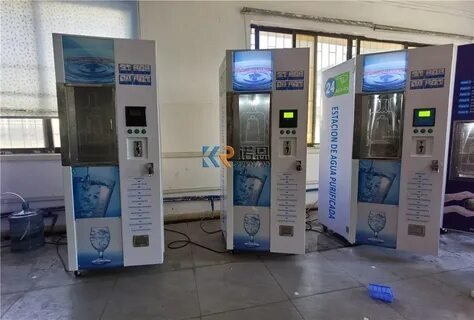Businesses have to be nimble, scalable, and cost-effective in today’s fast-paced world of digital technology. Most old on-premise IT systems find this challenging because they are not scaly, costly to maintain, and cannot integrate with modern technologies. Cloud migration solutions therefore have emerged as the antidote to these challenges, allowing enterprises to transform operations, increase efficiencies, and drive innovation.
This article discusses why cloud migration solutions are the need of the hour for modern enterprises and how it unlocks unparalleled opportunities for growth and agility.
1. Scalability for Growing Demands
Modern enterprises need to quickly adapt to fluctuating workloads: seasonal spikes or scaling up operations around the world. migration solutions allow businesses to scale resources up or down based on demand, ensuring operational efficiency and cost savings.
- Illustration: An e-commerce website that has very high traffic on Black Friday can use services to meet the peak without spending in expensive on-premise infrastructure.
Using solutions, organizations avoid over-provisioning and yet deliver constant performance at peak times.
2. Cost-Efficiency and Operational Savings
Traditional IT setups require significant investments in capital, hardware, and energy consumption. migration solutions erase these costs by moving businesses into a pay-as-you-go model.
- Advantages:
- Eliminates the need to pay for hardware and infrastructure upfront.
- No maintenance cost or expensive upgrades.
- Updates are also automated by providers.
This flexibility in finances allows enterprises to free up resources for innovation and strategic activities.
3. Better Security and Compliance
Cloud migration solutions address the modern enterprise’s most significant threat: cybersecurity. Advanced security measures, including encryption, real-time monitoring, and multi-factor authentication, are provided. Leading cloud providers, such as AWS, Azure, and Google Cloud, follow industry standards to ensure enterprises’ compliance with regulations.
- Key Features:
- Regular security patches and updates to prevent vulnerabilities. Tools for compliance with GDPR, HIPAA, and other regulations.
With cloud-based security tools, enterprises can protect sensitive data while focusing on growth.
4. Flexibility and Innovation Through Integration
Modern businesses rely on integrating innovative tools and technologies such as artificial intelligence (AI), machine learning (ML), and Internet of Things (IoT). On-premise systems mostly cannot support these advancements. Thus, cloud migration solutions would be the only way these technologies can be integrated harmoniously, enabling businesses to innovate at a rapid pace and therefore be ahead in their field.
- Example: Using AI-powered analytics through cloud platforms like Google Cloud to gain real-time insights and improve decision-making.
5. Business Continuity and Disaster Recovery
Downtime or data loss can cripple enterprises. Cloud migration solutions ensure business continuity through robust backup and disaster recovery (DR) options.
- Features of Cloud-Based DR:
- Automatic backups stored in multiple geographic locations.
- Rapid recovery capabilities to minimize downtime.
Enterprises can maintain continuous operations even in the case of unexpected disruptions, thus securing revenue and customer trust.
6. Remote Work Enablement
In today’s world, with remote and hybrid work patterns being the new norm, businesses need solutions that enable employees to collaborate seamlessly from anywhere. migration solutions enable just that by providing access to applications and data through secure, internet-based platforms.
- Example: Microsoft Teams and Google Workspace provide real-time collaboration and file sharing with the support of infrastructure.
This flexibility, apart from productivity, increases employee satisfaction.
7. Environmental Sustainability
Sustainability is now becoming an important factor for the modern enterprises. Th providers are going green with practices such as using renewable energy and optimizing energy usage in the data centers. Businesses can reduce their carbon footprint and support their sustainability goals by migrating to the
8. Competitive Advantage
In high-tech industries, using migration solutions gives a competitive advantage over competitors. Enterprises can launch products faster, improve customer experiences, and react to market changes faster than those that do not use -based systems.
Sustainability is increasingly becoming a priority for modern enterprises.providers are adopting eco-friendly practices, such as using renewable energy and optimizing energy consumption in data centers. By migrating to the , businesses can reduce their carbon footprint while supporting their sustainability goals.
In industries driven by rapid technological advancements, adopting migration solutions provides a distinct edge over competitors. Enterprises can accelerate product launches, enhance customer experiences, and respond to market changes faster than those relying on traditional systems.
migration solutions are no longer a luxury but a necessity for modern enterprises striving to thrive in a competitive and ever-changing environment. By enabling scalability, cost-efficiency, innovation, and enhanced security, cloud solutions position businesses for success in the digital age.
Enterprises that embrace these solutions can future-proof their operations, ensuring they remain agile, resilient, and prepared for the challenges of tomorrow.
Conclusion
Cloud migration solutions stop being something of luxury but rather turn into something of necessity for nowadays enterprises wanting to succeed in the hyper-competitive and constantly changing environment. Scalability and cost-effectiveness, leading to innovative and enhanced security, put an enterprise ahead in the market in terms of the changing digital space. Enterprises in embracing this solution will eventually future-proof their operations- agile and resilient and ready for tomorrow.















Leave a Reply